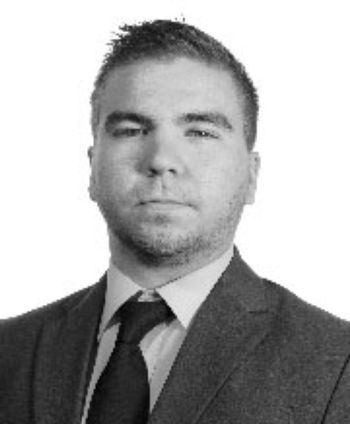UO prez: 'Tactic of silencing' is 'awfully close' to fascism
Schill himself was recently on the receiving end of the "tactic of silencing" when students refused to let him deliver a State of the University address due to their vague concerns about tuition costs and "fascism."
University of Oregon President Michael Schill is speaking out against what he calls "severely misguided" efforts to fight fascism by censoring free speech.
A few weeks after he was shouted down by left-wing activists, University of Oregon President Michael Schill is speaking out against what he calls a misguided crusade against fascism.
Earlier this month, Schill was scheduled to give a State of the University speech during which he planned to announce an anonymous $50 million donation and outline the school’s plans to spend that money.
[RELATED: Clueless protesters shout down University of Oregon prez]
Before Schill could get to the podium, however, left-wing activists stormed the stage with a megaphone and cardboard signs while chanting “Nothing about us without us!” and repeatedly referring to Schill as “CEO Schill.”
Their largely-incoherent message included vague, shouted concerns about tuition costs and “fascist” propaganda.
Even though the event was cancelled, Schill preemptively pre-recorded a video of the same speech and posted it on the university’s website after administrators noticed social media posts indicating that the actual speech would be protested.
Now, Schill is firing back with an op-ed in The New York Times, pointing out that while the protesters claimed that his support for free speech “perpetuated ‘fascism and white supremacy,’” he finds it “ironic that they would associate fascism with the university during a protest in which they limit discourse.”
[RELATED: Berkeley students shut down exam, demand 'take-home' instead]
“I have nothing against protest. It is a time-honored form of communicating dissent. Often, the concerns students express very much deserve to be addressed,” he acknowledges. “But the tactic of silencing, which has been deployed repeatedly at universities around the country, only hurts these activists’ cause.”
Recounting that “one of the students who stormed the stage during my talk told the news media to ‘expect resistance to anyone who opposes us,’” he remarks that the approach “is awfully close to the language and practices of those the students say they vehemently oppose.”
Calling the students’ objections to “offensive” speech “severely misguided,” Schill argues that “the students’ own tactics reveal just how malleable the concept of offensiveness can be.”
Noting that members of his own family were thrown into concentration camps and murdered by the Nazis during the Holocaust, Schill says that while he is personally offended “when students accuse me of leading an institution that harbors and promotes fascism,” that does not give him the right to censor that speech.
[RELATED: BLM protesters shut down ACLU free speech event]
“Educators and students must learn from each other, and nothing is more important to this exchange than free speech,” Schill contends, noting that the question of “how to protect speech and safety at the same time” is among the greatest challenges currently faced by academia.
“As with any important discussion, emotions can run high,” he concludes. “But the only way to create change is to grapple with difficult issues. Nothing can be gained by shutting them out.”
Follow the author of this article on Twitter: @KylePerisic

